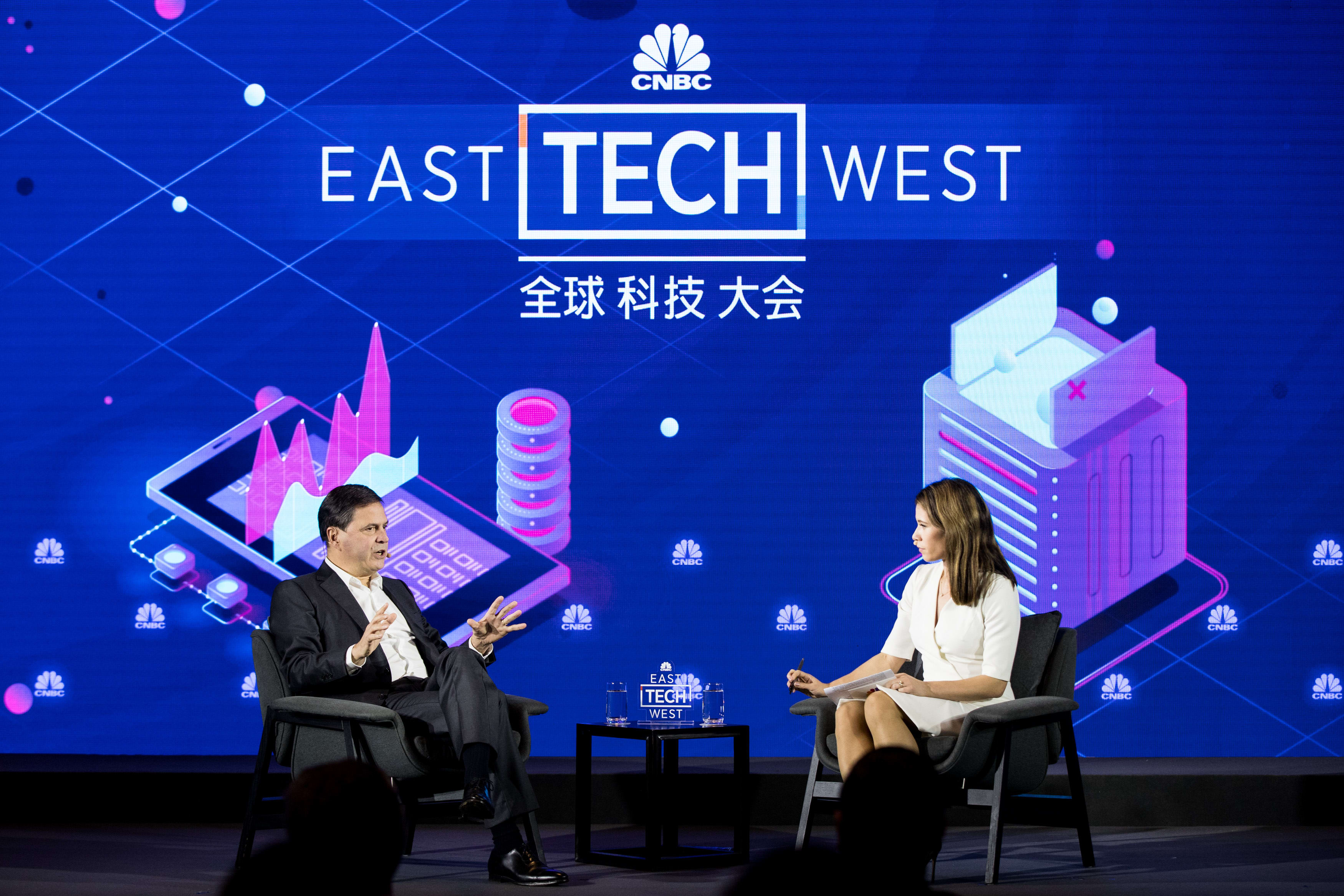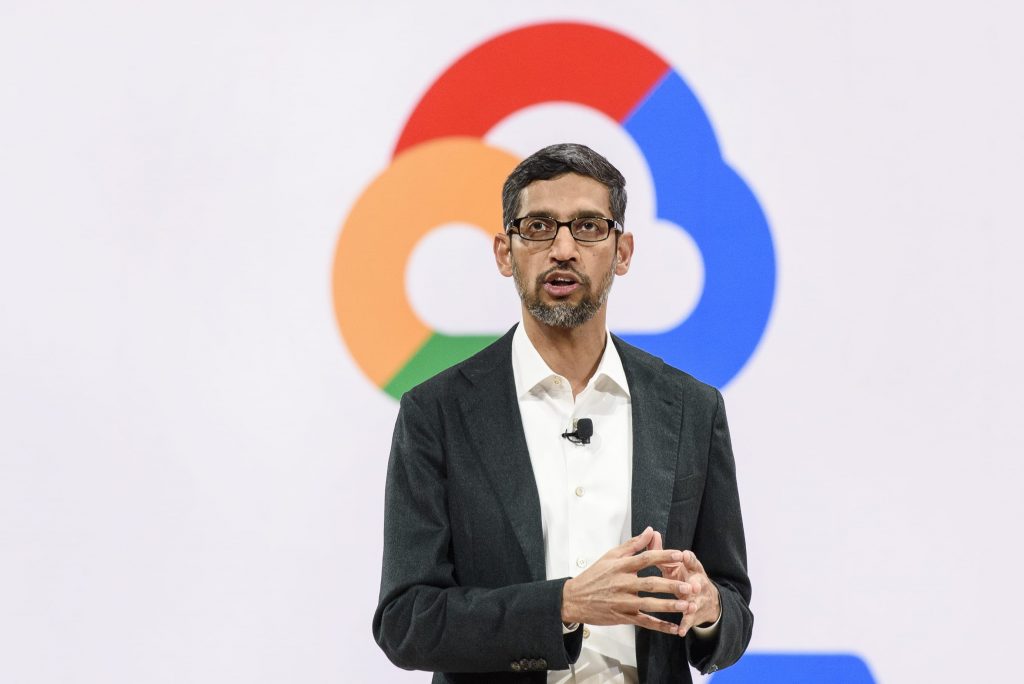
Alain Crozier, Chair man and CEO of Microsoft Greater China Region speaks with Deirdre Bosa, technology reporter of CNBC during the fireside chat on Day 1 of CNBC East Tech West at LN Garden Hotel Nansha Guangzhou on November 18, 2019 in Nansha, Guangzhou, China.
Zhong Zhi | Getty Images News | Getty Images
GUANGZHOU, China — For some big companies, U.S.-China business ties are still holding up, despite worries that trade tensions will cause the two economies to decouple.
The biggest change for Microsoft in the last year is having more opportunities than before in the Chinese market, particularly for Chinese companies wanting to go abroad, said Alan Crozier, chairman and CEO of the technology company’s Greater China region.
“If you want to be more efficient, you need to have a fundamental platform that is the same around the world,” Crozier said Monday at CNBC’s East Tech West conference in the Nansha district of Guangzhou, China.
The U.S.-based software giant entered the Chinese market in 1992. The company did not break out regional revenues in its latest quarterly earnings report.
Overall, American companies and their affiliates made more than $450 billion in sales in China in 2016, while that of the Chinese counterparts in the U.S. were less than $50 billion, research firm Gavekal Dragonomics said in a report in August.
As trade tensions between the U.S. and China simmer, Beijing has stepped up its efforts to improve the business environment for foreign companies in the country. Analysts also say these moves, such as better intellectual property protection, come as maturing Chinese companies find they need similar standards.
Chinese companies tap US markets
For their part, many Chinese businesses still choose to list their stocks in New York, often for a boost to brand awareness.
Robert McCooey, chairman of Nasdaq Asia-Pacific, said Monday at a separate conference session he expects about 35 or 38 Chinese companies to go public in the U.S. this year, down slightly from his forecast in May of more than 40 listings.
“We’re excited to welcome Chinese companies like we have from iQiyi and Pinduoduo last year, and DouYu as the tenth largest IPO of this year in all the U.S. markets,” McCooey said. “They want to come to the U.S. And so that nexus is, the fact that they want to tap into the most sophisticated technology investors in the world, and they’re in the United States.”
WeBank, a digital bank that counts Chinese technology giant Tencent as a strategic investor, is also looking outside China for ideas through open source artificial intelligence and blockchain systems. The Linux Foundation announced in September that WeBank joined the organization, best known for its open-source operating system.
“We believe that the world is going to be more and more collaborative. It should be more and more collaborative,” Henry Ma, chief information officer of WeBank, said during a panel on Monday.
“Nobody is going to be able to do everything. We have to work together to come up with some innovative business model,“ he said, noting how a unified technological platform could help delegate the development of compliance and risk management.
That said, many other companies face challenges in growing their cross-border business. Chinese automaker GAC Motor said in May it would postpone its U.S. launch due to trade tensions. Some American companies are shifting investment out of China due to tariffs, according to a survey released in September by the American Chamber of Commerce in Shanghai.
For Microsoft, Crozier is optimistic the company can adapt to the Chinese market while maintaining a set of principles on ethics and security.
“The Chinese companies are getting bigger. They are also getting better,” he said. “Let’s not forget innovation is core to everything we are doing in the tech world. If for some reason your competitor is innovating more and better than you, you have to change the way you work.”
<![CDATA[
img { max-width: 490px; } .bodycontent { margin-bottom: 20px; } .form-field {margin-bottom: 10px;} @media only screen and (max-width: 780px) { .widget-header > img { width: 100%; max-width: 100% !important; } } ]]]]>
]]>

